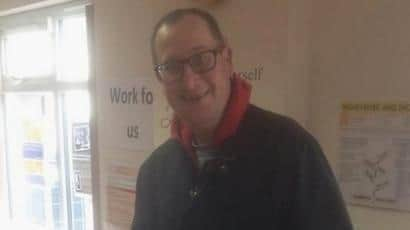Confrontation between residents at Derbyshire care home sees man die after single punch
and live on Freeview channel 276
Chesterfield Coroner’s Court heard that Robert Chaplin, 49, died at the Queen’s Medical Centre in Nottingham on January 24 2020.
Robert was a resident at the Morewood Centre on Wingfield Road, Alfreton – a facility run by Derbyshire County Council which caters for adults with learning difficulties and mental health problems. Robert had been diagnosed with bipolar disorder, schizophrenia and autism.
Advertisement
Hide AdAdvertisement
Hide AdHe died after being punched by a fellow resident – whose identity was protected as ‘Witness A’ during legal proceedings.


Robert had a history of hospital admission – including compulsory detention – for his mental health.
He had supported living tenancies but these were unsustainable, and often stayed with his parents.
Robert eventually moved into the Morewood Centre in 2019 as a temporary measure, while other placements were sought for him.
Advertisement
Hide AdAdvertisement
Hide AdWitness A also suffered from mental health issues and learning difficulties.
Mr Nieto said that putting people together with such complex needs can create “volatility” – which was “clearly the case when Witness A and Robert were together”. Witness A later told police during an interview that they tended to argue when Robert was drunk.
On January 23 2020, Robert had asked staff for £30 of his own money to go to the pub – which he was given. He returned later in the evening, with Mr Nieto stating that “it was clear Robert was intoxicated with alcohol to some degree at the time of the incident.”
Robert and Witness A then got into an argument, after which Witness A went outside to call a friend and speak about what had happened. He then believed that Robert had locked him out of the property, and he smashed a plant pot in frustration.
Advertisement
Hide AdAdvertisement
Hide AdWhen Witness A came back inside, the confrontation continued, with the pair squaring up to each other and exchanging comments. Staff tried to separate them from each other and Witness A flipped a table before going to leave.
At that point, however, Robert continued to provoke Witness A – raising his fists and encouraging him to fight. Witness A then punched Robert – landing a blow on his neck – after which Robert fell to the floor and became unresponsive.
Robert was transported to hospital, where he was diagnosed with an unsurvivable hypoxic brain injury, and died the following day.
In an interview with police, Witness A later said: “I did not intend to kill Robert or cause him any injury – I felt like I had no choice. I feel sad and devastated that Robert has died.”
Advertisement
Hide AdAdvertisement
Hide AdA post-mortem examination concluded that Robert’s cause of death was the hypoxic brain injury he had sustained. He suffered this after going into prolonged cardiac arrest following the punch.
The pathologist who examined Robert, however, did not find any detectable injuries caused by the punch itself.
Robert was found to have significant cardiac disease, and the pathologist deemed it likely that he experienced cardiac arrest due to the physiological stress of the altercation with Witness A.
Advertisement
Hide AdAdvertisement
Hide AdMr Nieto said there were no acts or omissions by health or social care staff that had contributed to Robert’s death.
While it was not ideal to have people with such complex needs living together at the Morewood Centre, Mr Nieto said there was “clearly no option but for Robert and Witness A to be placed at Morewood”, given the national shortage of supported living placements.
He accepted that, had they been offered different placements, this incident would not have occurred.
Mr Nieto did add that their stays at Morewood were necessary due to a lack of ready alternatives, and that the centre was “not inappropriate” for both residents.
Advertisement
Hide AdAdvertisement
Hide AdMr Nieto also said that it might have been sensible for staff to have a conversation with Robert when he asked for £30 to go to the pub, with his degree of intoxication having some bearing on the altercation that led to his death.
He felt that staff could have spoken with him about taking less money – but said it could not be known if he would have accepted this proposal.
While both men exchanged aggressive and violent comments, Mr Nieto said there was evidence from both Witness A and staff members that he was in fear of being punched by Robert. He could not, however, say that either had intended to cause serious harm to the other.
Mr Nieto concluded that Robert died due to an unsurvivable hypoxic brain injury following prolonged cardiac arrest caused by being punched – and that his existing cardiac problems had contributed to his death.